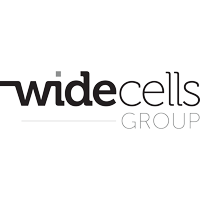Konstantinos Vavitsas, The University of Queensland
Researchers believe that DNA – the molecule that stores information about life – could one day be used as a type of sensor, to record information based on its surroundings.
Synthetic DNA (not produced in an organism and not containing genetic information of a species) has already been used to store data, as a sort of biological hard drive.
But now, MIT researchers Weixin Tang and David Liu say that their CAMERA system (acronym for CRISPR-mediated analogue multi-event recording apparatus) makes bacteria able to record their surroundings.
The microbes are able to sense and note in their DNA the presence or absence of sunlight, antibiotics, or nutrients in their vicinity.
This system has two variations.
CAMERA 1 records the presence and intensity of an external molecule by changing the ratio of two small circular DNA pieces (called plasmid) inside the bacteria. This allows you to determine whether, how much and for how long the microbe was sensing the external molecule.
CAMERA 2 is more advanced and records by making a DNA edit (imagine the equivalent of burning a DVD, but on the genome).
Both systems can keep the information records steady for several hours. And as a true recording device, it has a “reset” function that cleans the information and sets the system ready for another recording.
How it works
An audio or video recorder in effect translates information. The composition and complexity of photons and sound waves is transformed in a way possible to store. A reading device then retrieves that information.
The same principles apply to recording in DNA format, and in this case there are two technologies that make this possible.
The first one is CRISPR/Cas9, a gene editing tool. CRISPR can target DNA sequences very precisely. In CAMERA 1, CRISPR works by breaking down one of these two circular DNA pieces, changing their ratio.
CAMERA 2 uses CRISPR to make small changes to the original DNA sequence. When the molecule of interest is in the environment, it causes the cells to produce CRISPR in a controlled manner. In that way, the result is precise and tied closely to the external cue.
The second technology is DNA sequencing, and in particular next generation sequencing. The information recorded needs to be retrieved and analysed.
That may sound straightforward, but keep in mind that we need to detect a few changes in a one or two letters out of the few million letters that make the bacterial genome.
Next generation sequencing allows reading DNA in very high speed and very high accuracy. More importantly, it makes the cost of reading DNA drop, making routine sequencing applications financially viable.

